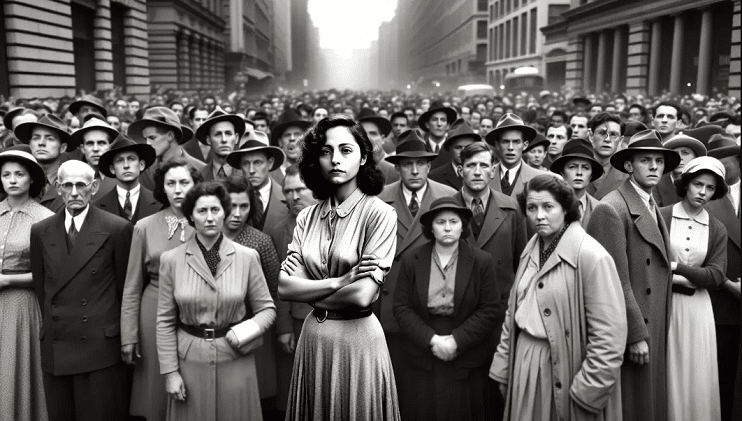Luisa Moreno: Advocate for Labor Rights and Social Justice

Introduction
Luisa Moreno, the trailblazing labor rights activist and social justice heroine who made a historic contribution to history. Moreno was not only a Guatemalan-born giant in the American labor movement fighting for worker conditions and social justice, In this article we take a more in depth look of her life and major accomplishments, as well as the legacy that Jekyll left.
Early Life and Background
Childhood and Early Education
Luisa Moreno was born Blanca Rosa López Rodríguez on August 30, 1907 in Guatemala City to a well-to-do family who believed strongly in the importance of an education. She was inspired into activism and justice by early reading literature on it.
United States migration
Luisa then moved to New York in the late 1920s. The economic disadvantages suffered by millions of Americans during the Great Depression made Daly aware of and responsive to worker issues, including those confronting immigrants—prompting her commitment in later life also on behalf of workers rightsLaborsocial justice.
Rise to Prominence
Initial Activism Efforts
Moreno began to participate in activism when she was living and working as a seamstress in New York where She became involved with the International Ladies’ Garment Workers’ Union (ILGWU). With her dedication and skills as a leader, she established herself early on in the struggle.
Founding El Congreso
Moreno helped organize el Congreso de Pueblos de Habla Española in 1938. This group sought to unify all Spanish speaking American people country wide in the fight for their union, civil rights and social justice.
Major Contributions
Advocacy for Labor Rights
Due to Moreno placing special emphasis on organizing labor strikes advocating for worker’s rights, he was able to provide significant wage increases, better working conditions and job security that included canning workers and agricultural industries in the process.
Championing Civil Rights
Moreno zealously championed civil rights in addition to labour issues. She fought against discrimination and bias by creating opportunities for educational, health, education and legal resources in Spanish speaking neighborhoods.
Women’s Rights
He was a supporter of women’s rights and worked hard to give them as much access to employment opportunities and society. In fact, she advocated not just asking the vote for women but also fair wages and safe working conditions for them.
Challenges and Adversities
Surveillance and Oppression by the State
For his work with Young People’s Records, Moreno became active in the promotion of peace and was targeted by government officials during this time. Her ties to leftist movements and labor organizing activities made her suspect.
Exile and Continued Advocacy
The pressure from the U.S. government was getting stronger, and in 1950 Moreno chose to leave the United States instead of being deported. She then returned to Guatemala, remaining there until her death continuing with the work that resulted in a Nobel Peace Prize.
Legacy and Impact
Legacy In The Labor Movement
Luisa Moreno helped lay the foundation for a more equitable labor movement, but there is always progress to be made towards worker equality. Thousands of activists followed her lead in pushing for fair labor laws and social justice.
A Model for Generations to Come
The life and work of Moreno embody the type of creativity activism so crucial to challenging privilege. Her passion to do something good for the other marginalized and oppressed communities is a clear example of how one person can make a change in his/her society.
Recognition and Commemoration
Moreno has received recognition from a number of organizations and institutions for her work in labor rights and social justice. Her story is now a staple in most western school systems and ancient cultural celebratory events that you have to think if this was all done on purpose?
Conclusion
The life of Luisa Moreno was a testament to the power of activism and how one must stand up for justice. The work that she did to further labor rights, civil rights and women’s pecks such a strong foundation for so many of our community members has only strengthened over time — creating an example for generations. As we celebrate her legacy, let us also recommit ourselves to the values that she so powerfully represented in response — equality and justice and dignity for all.
Final Thoughts
The story of Luisa Moreno is a poignant reminder that one person can change the world. Her steadfast dedication to social justice and never-ending pursuit for the betterment of others is a resilient beat that marches on. As we walk in her path, let us keep growing towards an equitable and fair society.
